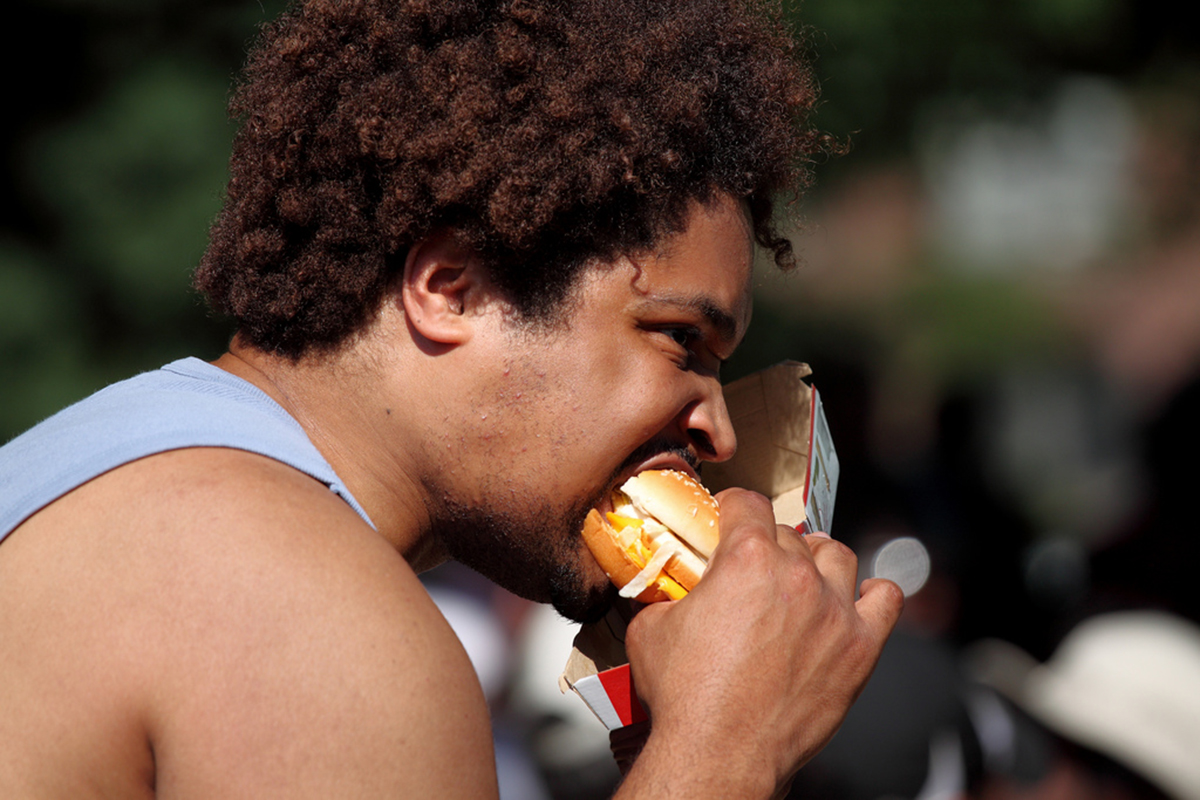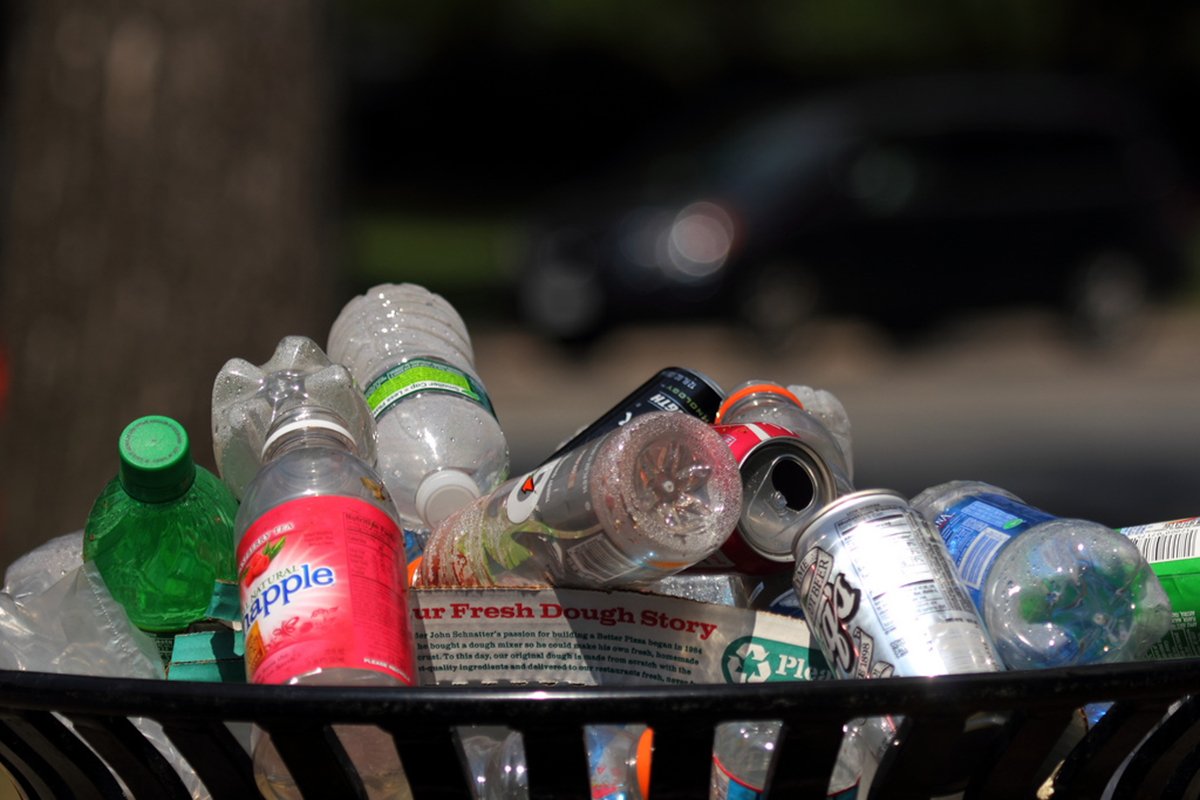Do you think you are unable to control which foods you consume, and how much? We all need food, and the term "food addiction" has been met with much caution. Others might simply think you don't care about your health or weight, and rather enjoy stuffing your face. Science proves them wrong. Food addiction is real.

Back in the '90s, Nobel et al (from UCLA) found that obese adults who were "bingeing on dense carbohydrates" had the same gene marker that denotes a tendency toward alcoholism and drug addiction, though these study subjects were neither alcoholics nor junkies. More recent research reveals that intense sweetness, found in refined sugar as well as artificial sweeteners, produces a stronger effect than cocaine in lab animals. Yet another study showed that the brain is triggered to want more fat when fat is consumed.
Food Addiction: The Tell-Tale Signs
Are you a food addict, or simply someone who enjoys eating tasty things — but sometimes a bit too much of them? Realizing you have a problem with food is tricky, because everyone needs food and most people eat a little more than they need on occasion. Food addictions develop gradually, and you may not even be sure if you are simply a lover of good food or a true addict.
You could be struggling with a food addiction if you display most of these tell-tale signs:
- You often end up eating more than you had planned, and more than you need.
- When you crave a certain food, you'll go to great lengths to get it.
- Your "relationship" with foods interferes with your life — work, family, or education. We won't even mention recreation, because eating is your hobby.
- You either worry about the fact that you overeat a lot, or are past the point of caring.
- When you don't get the food you want, you become anxious and agitated.
- You have noticed that you need larger amounts of food to achieve the same effect.
- You eat when you are hungry, have something to celebrate, are stressed, or feel down. You eat. A lot.
Food addicts are bound to struggle most with so-called "highly palatable foods": those that are high in sugar, fat, and salt. These foods trigger feel-good chemicals in the brain that make them satisfied and happy. But not for long, because like all addicts, they'll need more and more to achieve the same effect.
Obesity is one tell-tale sign of a food addiction, but don't be fooled. People who are at a healthy weight can also be food addicts.
See Also: Junk Food and Its Impacts on Brain: Junk Food Addiction
Normal-weight food addicts could simply have a great metabolism, or might increase their physical activity to make up for all the food they eat.
A food addiction can quite literally take over your life. The good news is that recognizing you have a problem is an incredibly productive step on the road towards overcoming your addiction. Though some people require professional help to kick their habits, others can successfully manage to develop healthy eating patterns again. The next page tells you how.
Healing From Your Food Addiction: Practical Steps
A food addiction is arguably the most difficult addiction to overcome. People who are in the process of overcoming other types of addiction can usually stay away from the thing they're addicted to altogether, which makes healing easier. Drug addicts might never see drugs again after they quit, gamblers can stay away from the venues at which their addiction played out, and though alcoholics will certainly come into contact with drink, they can decide to stay sober for the rest of their lives.

You will not be able to stop eating, and you'll probably always be tempted to revert to your former habits. Overcoming a food addiction is not for the weak and spineless — learning to eat responsibly will require an awful lot of will power.
Where do you start?
Decide
Deciding you want to change is your first step. You realize you have a problem, and you are committed to living more healthily. This first step is the most daunting, and it's best to avoid rushing into the "doing" stage only to fail and come back to where you started. Investigate how you want to go about overcoming your food addiction before you actually start. Plan ahead.
You might want to:
- See your family doctor to discuss the resources that could be available to food addicts in your area.
- Look into support groups for food addicts, but also take a very close look at their philosophy before joining them. If you join a support group, choose one that you think will really benefit you. A group that has an underlying idea you don't agree with will not help. Some might not like the religious aspect of 12-step groups, for instance, while others will have a problem with the fact that many groups are weight-focused rather than health-focused.
- Ask your friends and family to help and support you. Members of your household should commit to ensuring your problem foods don't appear in your home at all.
- Decide to start with small steps and commit to sticking with them.
Do
Food addicts who are receiving support from medical professionals might have a diet plan laid out for them, but not everyone will have this type of help. Success is within your reach if you decide to take a gradual approach to overcoming your addiction. Change yourself one meal at a time.
Small steps you might do well with include:
- Saying no to sugar-filled beverages.
- Saying no to snacking in between meals.
- Starting the day with a healthy, protein-filled breakfast to keep you going.
- Eating vegetables at every meal.
- Eating at least one home-cooked, healthy meal a day.
- Steering clear of fast-food outlets.
Try to change everything at once, and you will be doomed to failure — don't underestimate the grip your food addiction has on your life. Though a food addiction can lead to many health problems including overweight, type II diabetes and nutritional deficiencies, these will never be cured without addressing the underlying addiction.
Having said that, every person needs regular physical activity. Committing to working out at least three times a week will help you lose weight if you need to, but it also takes up time you might otherwise spend on eating. Working out can be truly play an essential role in your healing process. You'll also find that other distractions — like a new hobby or spending time with your loved ones — are key to your success.
Stick With It
There will be days on which you think you are well on the road to recovery. There will also definitely be days on which you are really, really tempted to go back to your old habits. Starting change is much easier than sticking with it.
What do you do when you think you don't have the strength to deal with life's stresses without eating the way you used to?
Some ideas:
- Phone a friend to talk about it, or rely on your support group.
- Go for a jog or do some jumping jacks.
- Drink a huge glass of water instead of indulging in your chosen food.
- Write about it, in a journal or online (SteadyHealth is a great venue for writing about your struggles!).
See Also: Kick Your Meat Addiction
After a while, you will start to feel comfortable with your new eating habits, and you might think your addiction is in the past. This is a dangerous stage — thinking you can binge eat once because you're now "recovered" will lead to trouble.
- Photo courtesy of Mr.TinDC by Flickr : www.flickr.com/photos/mr_t_in_dc/4722400577
- Photo courtesy of Mr.TinDC by Flickr : www.flickr.com/photos/mr_t_in_dc/5919993850


Your thoughts on this